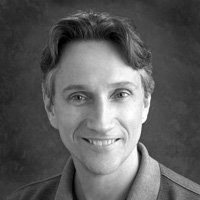My grandfather, Harry S. Truman, though he ordered the atomic bombing of Hiroshima and believed it necessary to end World War II, was stunned and saddened by the destruction and loss of life. When White House photographer Joe O’Donnell, who had taken some of the earliest U.S. photos of the aftermath, asked my grandfather in 1950 if he’d ever had regrets over the bombings, Grandpa reportedly said, “Hell, yes.”
The White House said Tuesday that Barack Obama will this month become the first sitting U.S. president to visit the Hiroshima memorial. Obama will reportedly not revisit the decision to use the bomb. Secretary of State John Kerry also recently paid tribute, during the run-up to the Group of Seven meeting in Ise-Shima, and I thought he struck just the right tone in placing a wreath at the cenotaph to honor the victims.
To those who might think these gestures are an apology, consider the story of the late Orval Amdahl of Lanesboro, Minnesota.
Amdahl, a Marine artillery captain, dreaded the land invasion he and his men were planning for and breathed a sigh of relief when Japan surrendered. Yet when he stepped ashore at Nagasaki, he was heartsick at the destruction. Encouraged to take a souvenir, he brought home an officer’s sword. In 2013, he gave it back to Tadahiro Motomura, son of the officer who had surrendered it. Motomura honored the gesture by coming to St. Paul, Minnesota, with his family to receive it.
Or Fred Mitchell, who barely escaped as kamikaze pilots destroyed his ship, the USS Drexler, and killed most of his friends. For decades, he harbored a deep hatred for the Japanese. Finally, unable to tolerate the poison any longer, he traveled to Japan and met—and befriended—some of the men who had been trained to kill him.
“Looking at these old Japanese men who didn’t look much different from me… it was just so hard to believe that we were trying to kill each other,” he said. “They were of the same mind as we were. There comes a time to end the hatred.”
When my family and I attended the memorial ceremonies in Hiroshima and Nagasaki in 2012, we met with more than two-dozen survivors. Not one asked me for an apology. This includes Setsuko Thurlow, who stood next to me on stage and, with my blessing, told an audience that my grandfather’s decision was unnecessary and cruel. Thurlow, twice nominated for a Nobel Peace Prize, has been speaking out against nuclear proliferation almost since the day in 1945 that she was pulled from a burning army barracks in Hiroshima. She does so for only one reason: so that the rest of us understand the horror of a nuclear explosion.
It’s not about apology. It’s about honor, respect, empathy, and honesty. And for survivors, it’s very much about fear for our future. To that end, I hope that President Obama will make time to visit Nagasaki as well. Both are cities of peace: Hiroshima, because it is the first city to have been destroyed by an atomic bomb, and Nagasaki, because so far … it is the last.




